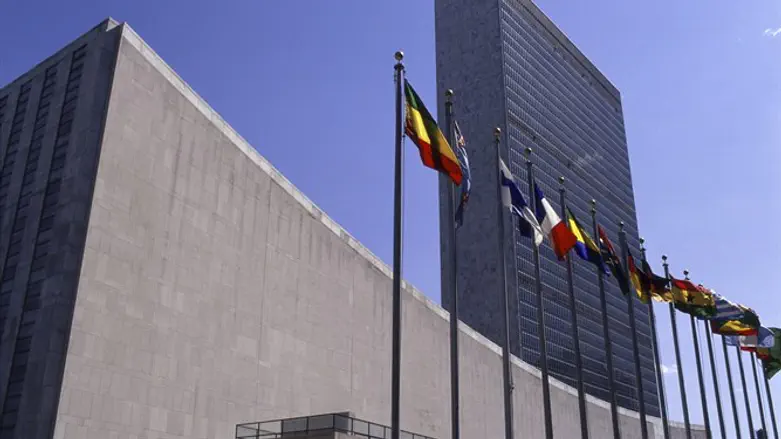
Israel has decided to abandon its quest for its first-ever seat on the United Nations Security Council after seeing its low chances of success, Israel Hayom reported.
Israel had been quietly working behind the scenes for more than a year in an effort to win a seat on the 15-nation council in the upcoming elections in June. However, sources within the Foreign Ministry said that Israel did not manage to muster up the necessary majority and will likely inform its allies to remove it from consideration.
Landing a spot on the Security Council would have been a major foreign policy achievement for the Jewish state. The 15-member body is the most powerful of the 6 organs that make up the United Nations, and its powers include the establishment of peacekeeping operations, the establishment of international sanctions, and the authorization of military action through Security Council resolutions.
The body has five permanent members and ten temporary members that are replaced every two years. In order to win a seat on the influential council, a nation must get the support of two-thirds of the UN General Assembly, an unlikely scenario in the often hostile international body.
In August, Bloomberg detailed the immense efforts Israel was investing in order to secure a Security Council seat, which included hosting 24 ambassadors from around the world, taking them on exclusive trips to Israel, and hosting a dinner party in May for the ambassadors of 15 African nations.
"They’ve done their campaign with a level of sophistication which is remarkable, doing it systemically, arranging fact-finding missions and bilateral agreements,” Syed Akbaruddin, India’s ambassador to the UN, told Bloomberg.
Prime Minister Netanyahu also called on President Nursultan Nazarbayev to support Israel's Security Council bid at a joint press conference they held in Astana during Netanyahu's official state visit in December 2016.
"We helped you get accepted as a member of the Security Council and now we are asking you to help us be a member of the council" Netanyahu had told him.
In February, Austrian Chancellor Sebastian Kurz promised Netanyahu that he would support Israel's efforts at winning a seat in exchange for Israel's support for Austria's bid.
"We agreed to strengthen our bilateral relations, but also to cooperate more closely in multilateral forums. That’s why we agreed to support each other mutually in our bids for a non-permanent seat for the UN Security Council," said Kurz.